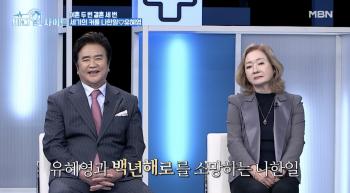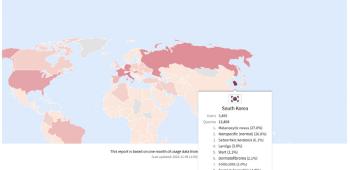Parents who blink can delay dementia by 30% if they treat mild cognitive impairment in time
May 05, 2025
|
In May, it is a month when concerns about elderly parents deepen. As in the case above, if parents repeat symptoms such as not thinking of appropriate words during ▲ conversation, ▲ forgetting what just happened, or ▲ forgetting their usual path, they should suspect mild cognitive impairment. Mild cognitive impairment refers to a state in which daily life is possible, but cognitive functions such as memory and language ability are deteriorated.
According to a survey by the Ministry of Health and Welfare, the prevalence of mild cognitive impairment in Korea over the age of 65 in 2016 was 22.25%, while in 2023, it increased by 6.17%p to 28.42%. It is predicted that the number of patients will reach 3 million this year.
Mild cognitive impairment is often known as a pre-stage of dementia. Therefore, many people think that if they manage well from this time on, it will not develop into dementia.
However, experts explain that mild cognitive impairment is already the starting point of dementia.
Professor Kim Yeo-jin of the Department of Neurology at Gangdong Sacred Heart Hospital explained, "Alzheimer's dementia, the most representative dementia, causes neuroinflammatory symptoms due to the accumulation of beta-amyloid proteins in the brain for 20 years. The symptoms of mild cognitive impairment themselves mean that more than 70% of major brain neurons are damaged, so delaying treatment can be dangerous." In fact, the prevalence of dementia in patients with mild cognitive impairment is more than 10 times higher than that of the normal elderly.
Although medications that generally improve cognitive decline symptoms in the brain have been used to treat mild cognitive impairment, 'rechemby' is recently recommended to treat the root cause of dementia. Rechemby is known to be most effective when administered in mild cognitive impairment or early dementia and can delay dementia by up to 30%.
Professor Kim Yeo-jin said, `Existing medications for mild cognitive impairment are effective in improving cognitive performance, but dementia itself could not be slowed down"Rechemby is a breakthrough treatment that delays dementia and cognitive decline because it directly removes beta-amyloid, the cause of dementia. "
Of course, there are points to note.
Side effects such as cerebral edema or cerebral hemorrhage may occur in some patients during treatment. To prevent this, it is important to perform at least four MRI scans for follow-up management. It should also be noted that patients with severe dementia, whose brain cells have been damaged for a long time, have low therapeutic effects.
Professor Kim Yeo-jin said "Brain cells cannot be restored once they are damaged" and "It is important to think that mild symptoms are the right time to slow dementia and to check your parents' conditions from time to time to actively cope with it."
In addition to cognitive decline, it is necessary to carefully examine whether ▲the amount of meals significantly decreased or ▲the number of words decreased and mental symptoms such as ▲depression and sleep disorders appear. In addition, to prevent dementia, underlying diseases such as high blood pressure, hyperlipidemia, and diabetes should be managed well along with a balanced diet, and drinking or smoking should be prohibited. Brain activities such as steady exercise, reading, and counting are also recommended.
|
This article was translated by Naver AI translator.















